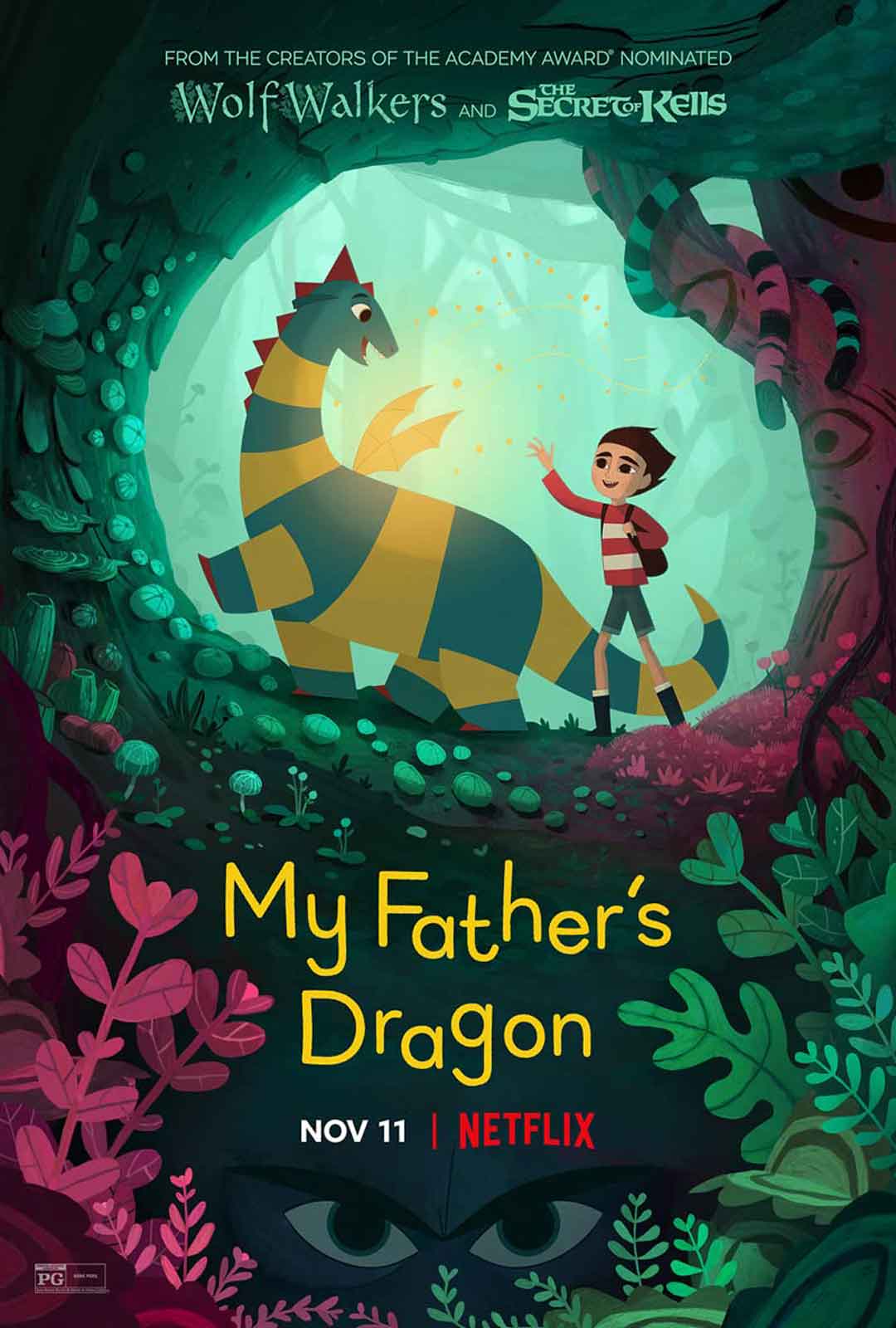For the youthful legends and courageous women in the softly supernatural tales by Irish movement studio Animation Cantina, their huge than-life ventures take them internal. Pair with the wondrous handcraft in plain view, the legitimate extravagance of their characters’ issues recognizes the studio’s elements from most Western family-accommodating admission.

Animation Cantina’s most recent soul-relieving and humbly charming gift to the world, “My Dad’s Winged serpent,” from chief Nora Twomey and screenwriter Meg LeFauve (“Back to front”), benevolently resuscitates the 1948 youngsters’ novel of similar name by Ruth Stiles Gannett. The story focuses on a brave youngster and an adolescent mythical serpent on an experience weighed down with illustrations in capacity to understand people on a profound level introduced through creative situations.

More appropriate for a more youthful crowd than Twomey’s brilliant and Oscar-selected first time at the helm “The Provider,” around a 11-year-old young lady in Afghanistan during the Taliban rule, “My Dad’s Winged serpent” grapples with how dread deadens or moves us. An unusual animal unnerved by their home vanishing; a parent blowing their top notwithstanding vulnerability; a kid feeling quickly frail — everybody encounters dread with comparable intensity. Yet, it’s by they way they decide to respond that dread can turn into a vehicle for development.

Abandoning their once effective store in a very close local area, a sympathetic kid named Elmer (Jacob Tremblay) and his mindful mother Dela (Golshifteh Farahani) move to a thick metropolitan region known as Nevergreen. In the new climate, Elmer accepts Dela’s commitment that they’ll before long possess another foundation. Their regular daily existences will continue their course. However as the tensions of life mount around her, that objective appears to be somewhat far off.

As a prize for his consideration in the midst of the homegrown strife, a talking feline aides Elmer to the bright Wild Island to free the still-not-completely evolved winged serpent Boris (Gaten Matarazzo) from Saiwa (Ian McShane), the head of all the fauna who utilizes him to keep their drifting home from sinking. Intended for greatest adorableness, the creatures here look and act with the appeal normal to fantasies: a bunch of grinning tigers has heads bigger than their bodies, and there’s additionally a tension ridden lemur, a mother rhino and her posterity, and some cotton-like pikas.

Freed from his constrained obligations, Boris makes sense of he wishes to turn into an “after-winged serpent,” a developed variant of himself with the capacity to spit fire. He really wants the kid’s assistance to unravel how to arrive at his maximum capacity. In return, Elmer maintains that his new fantastical mate should return with him to Nevergreen for a couple of days to stand out for himself as well as his mom’s possible new business. The fleecy islanders, nonetheless, need them both to save Wild Island.

The vegetation in this domain frequently shows up in red and pink tones, similar to a cognizant choice taken to differentiate the flawlessly finished foundations and Boris’ yellow and green striped skin. Boris’ skin is the most straightforwardly reliable visual component from the first delineations distributed over quite a while back.
Acclaimed for their works in light of Irish folktales, most as of late “Wolfwalkers,” Container Cantina keeps on showing that 2D isn’t just a suitable procedure in liveliness yet one fruitful for development. In “My Dad’s Winged serpent,” a portion of the more conceptual groupings utilize a natural tasteful with figures drawn as outlines moving smoothly across the edge to portray dread non-verbally. Somewhere else there are mark qualities, like Elmer’s huge eyes. The bended lines of his physiology are suggestive of a portion of the organization’s different heroes — like the fearless Parvana in “The Provider.”

Boris’ lively character supplements Elmer’s “man with an arrangement” mindset as they experience snags that fortify their kinship. Boris and Elmer walk together seeing someone rises to that in the end makes a charged and sad showdown depicted with sheer weakness. The complexities challenge both Boris and Elmer’s flexibility and clarify that in sharing the heaviness of what panics them they can overcome it. As in a few of Disney’s new deliveries, there’s no material lowlife, however deepest frailty or weakness to address.

Very much like the way that his mom misled him to safeguard him from distress after the move, Elmer thus should disguise a few insights to permit others to keep up with trust. LeFauve’s interpretation of that fundamental comprehension of the ethical equivocalness in some cases expected to push ahead is both mentally available for the objective segment and unmistakable to more seasoned watchers. Without tedious clarifications, Twomey’s sophomore exertion expresses that a singular’s activities, particularly those that guardians complete for their kids, can’t necessarily be shortsightedly named completely good or negative. Love lies in the middle between.

“However, my Dad’s Winged serpent” doesn’t mirror the terrific story stakes and astonishing symbolism of its ancestors at the studio, it’s actually incapacitating in its sincerity. Regardless of whether a miracle feels minor, it advises us that all that Animation Cantina puts its gifts in brings about kind, warm, and influencing craftsmanship that is never saccharine however specifically developed in fundamental drops of shrewdness. With “My Dad’s Winged serpent,” we are intended to consider the obscure not as the place that is known for uncertainty but rather as the region of probability, and of the responses, we need as the chance to make the ones we most craving.

Leave a Reply